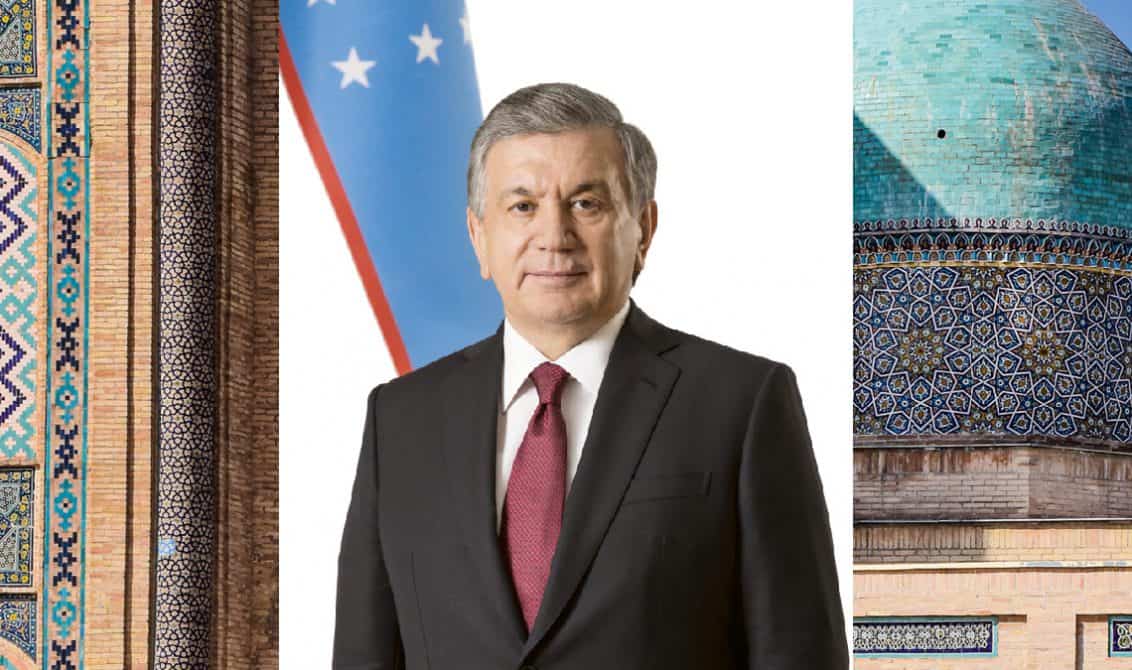
President of Uzbekistan Shavkat Mirziyoyev – Activities, Reforms, Achievements, Prospects
Activities
Shavkat Mirziyoyev became President of Uzbekistan in 2016. Since then, he has been active in a number of areas, including:
- Domestic policy: Mirziyoyev has focused on improving the lives of ordinary Uzbeks by reforming the economy, improving healthcare and education, and fighting corruption.
- Foreign policy: Mirziyoyev has taken a more open and engaged approach to foreign policy than his predecessor, Islam Karimov. He has improved relations with Uzbekistan’s neighbors, including Russia, China, and Kazakhstan, and has opened up the country to foreign investment.
- Regional cooperation: Mirziyoyev has played a leading role in promoting regional cooperation in Central Asia. He has helped to revive the Central Asian Cooperation Organization (CACO) and has organized a number of regional summits.
Reforms
Mirziyoyev has implemented a number of reforms in Uzbekistan, including:
- Economic reforms: Mirziyoyev has liberalized the economy, reduced state regulation, and encouraged foreign investment. This has resulted in economic growth and job creation.
- Social reforms: Mirziyoyev has increased spending on healthcare and education. He has also improved the rights of women and minorities.
- Political reforms: Mirziyoyev has released political prisoners and has allowed more freedom of expression. He has also taken steps to improve the independence of the judiciary.
Achievements
Some of Mirziyoyev’s key achievements include:
- Improving the economy: Uzbekistan’s economy has grown at an average rate of 5% per year since Mirziyoyev came to power. This is up from an average of 4% per year under Karimov.
- Reducing poverty: The poverty rate in Uzbekistan has fallen from 27% to 16% since Mirziyoyev came to power.
- Improving healthcare: Mirziyoyev has increased spending on healthcare and has built new hospitals and clinics. This has resulted in improved healthcare outcomes for Uzbeks.
- Improving education: Mirziyoyev has increased spending on education and has improved the quality of teaching. This has resulted in more Uzbeks completing school and going on to higher education.
- Improving human rights: Mirziyoyev has released political prisoners and has allowed more freedom of expression. He has also taken steps to improve the independence of the judiciary.
Prospects
Mirziyoyev’s reforms have had a positive impact on Uzbekistan. The economy is growing, poverty is falling, and healthcare and education are improving. However, there are still a number of challenges that Uzbekistan faces, including corruption, bureaucracy, and inequality.
Mirziyoyev has said that he is committed to continuing his reforms. If he is successful, Uzbekistan could become a more prosperous and democratic country in the years to come.
However, there are also some challenges that could derail Mirziyoyev’s reforms. These include:
- Resistance from vested interests: There are some powerful individuals and groups in Uzbekistan who benefit from the status quo and who may resist Mirziyoyev’s reforms.
- Economic difficulties: The global economy is facing a number of challenges, including high inflation and rising interest rates. This could have a negative impact on the Uzbek economy and make it more difficult for Mirziyoyev to implement his reforms.
- Regional instability: The Central Asian region is facing a number of challenges, including the rise of extremism and the ongoing conflict in Afghanistan. This could destabilize Uzbekistan and make it more difficult for Mirziyoyev to implement his reforms.
Overall, Mirziyoyev has made significant progress in reforming Uzbekistan. However, there are still a number of challenges that he needs to overcome in order to achieve his goals.
Here are some of the key activities, reforms, achievements, and prospects associated with President Shavkat Mirziyoyev’s leadership in Uzbekistan:
1. Economic Reforms:
- Mirziyoyev initiated significant economic reforms, including efforts to liberalize the economy, attract foreign investment, and reduce the government’s involvement in business.
- He worked to improve the investment climate and promote entrepreneurship, leading to increased foreign direct investment.
2. Regional Relations:
- Mirziyoyev pursued a policy of greater regional engagement, improving relations with neighboring countries like Tajikistan and Kazakhstan.
- He aimed to enhance regional cooperation and connectivity, particularly in the areas of trade and transportation.
3. Human Rights and Political Reforms:
- The Mirziyoyev administration took steps to improve the human rights situation, including the release of some political prisoners and the easing of restrictions on civil society.
- He introduced measures to increase political openness and transparency, such as allowing opposition parties to participate in elections.
4. Education and Healthcare:
- The government launched initiatives to reform and modernize the education and healthcare sectors, aiming to improve access and quality of services.
5. Agriculture and Water Management:
- Efforts were made to modernize agriculture and improve water resource management in a country heavily dependent on cotton and agriculture.
6. Security and Counterterrorism:
- The government focused on enhancing security and counterterrorism measures to address security concerns in the region.
7. Prospects:
- President Mirziyoyev’s leadership represented a significant departure from the previous authoritarian regime, and his reforms aimed to modernize and open up Uzbekistan’s economy and society.
- The prospects for Uzbekistan under Mirziyoyev’s leadership included continued economic growth, improved relations with neighboring countries, and gradual progress in human rights and political openness.
- Uzbekistan’s strategic location in Central Asia also made it a key player in regional affairs, and its cooperation with other countries in the region was expected to increase.